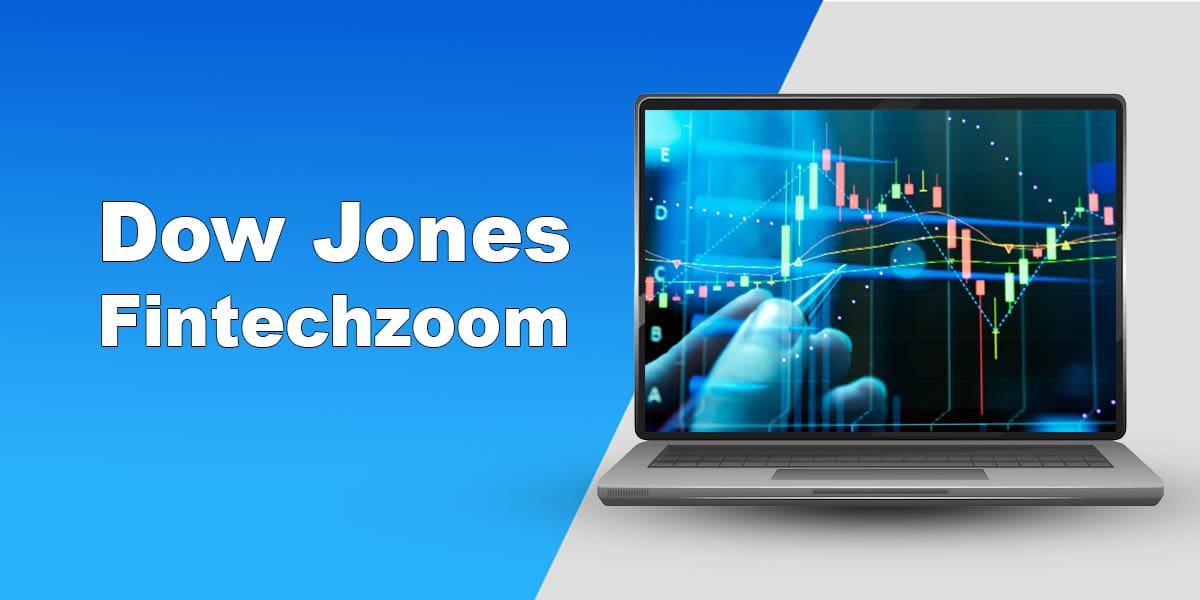The Dow Jones Industrial Average (DJIA), commonly known as the Dow Jones, is one of the most recognized stock market indices globally. Its performance is closely watched by investors and financial analysts as a gauge of the overall health of the stock market and the economy. Meanwhile, fintech, or financial technology, is rapidly transforming how financial services are delivered and consumed. This guide explores the Dow Jones index, its significance, and how fintech innovations are intersecting with traditional financial markets.
Understanding the Dow Jones Industrial Average
**1. What is the Dow Jones Industrial Average?:
- Definition: The Dow Jones Industrial Average is a stock market index that tracks 30 major publicly traded companies in the United States. It is one of the oldest and most widely followed indices in the world.
- History: Established in 1896 by Charles Dow and Edward Jones, the Dow Jones was originally created to track the performance of 12 industrial companies. Over time, it has expanded to include 30 leading firms from various sectors.
**2. Components of the Dow Jones:
- Constituents: The DJIA includes companies from diverse industries, such as technology, finance, healthcare, and consumer goods. Notable constituents include Apple, Microsoft, Boeing, and Goldman Sachs.
- Price-Weighted Index: Unlike market-capitalization-weighted indices, the Dow Jones is a price-weighted index. This means that stocks with higher prices have a greater impact on the index’s performance, regardless of the company’s overall market capitalization.
**3. Importance of the Dow Jones:
- Economic Indicator: The DJIA serves as a barometer for the overall health of the U.S. stock market and, by extension, the U.S. economy. It reflects investor sentiment and economic conditions.
- Investment Benchmark: The Dow Jones is a key benchmark for evaluating the performance of investment portfolios and funds. It provides a reference point for comparing returns and assessing market trends.
The Impact of Fintech on Financial Markets
**1. Overview of Fintech:
- Definition: Financial technology (fintech) refers to the use of technology to enhance and automate financial services. It encompasses a wide range of applications, from digital payments and online lending to blockchain and robo-advisors.
- Growth and Adoption: The fintech industry has experienced rapid growth, driven by technological advancements, evolving consumer preferences, and increased investment in digital solutions.
**2. Key Fintech Innovations:
- Digital Payments: Innovations in digital payments, such as mobile wallets and contactless payment systems, have transformed how consumers and businesses handle transactions. These technologies offer convenience, security, and speed.
- Blockchain and Cryptocurrencies: Blockchain technology underpins cryptocurrencies like Bitcoin and Ethereum. It provides a decentralized and secure way to record transactions and create smart contracts, impacting various sectors beyond finance.
- Robo-Advisors: Robo-advisors use algorithms to provide automated investment advice and portfolio management. They offer a cost-effective alternative to traditional financial advisors, making investment management more accessible.
**3. Intersection of Fintech and Traditional Markets:
- Market Integration: Fintech innovations are increasingly being integrated into traditional financial markets, including stock exchanges and trading platforms. This integration enhances market efficiency and provides new tools for investors.
- Enhanced Trading Platforms: Modern trading platforms leverage fintech advancements to offer real-time data, advanced analytics, and automated trading features. These tools enable investors to make more informed decisions and execute trades with greater precision.
The Dow Jones and Fintech Trends
**1. Fintech’s Influence on the Dow Jones:
- Market Impact: Fintech trends can influence the performance of companies listed on the Dow Jones. For example, technology firms involved in fintech innovation may experience growth, impacting their stock prices and the overall index.
- Investment Opportunities: The rise of fintech has led to the emergence of new investment opportunities. Investors can now access fintech-focused funds, ETFs, and stocks, allowing them to gain exposure to the growth of the fintech sector.
**2. Technological Advancements and Market Efficiency:
- Algorithmic Trading: Algorithmic trading, driven by fintech, has become a significant factor in financial markets. Algorithms execute trades based on pre-set criteria, improving market efficiency and liquidity.
- Data Analytics: Advanced data analytics tools, powered by fintech, enable investors to analyze market trends, track performance, and make data-driven decisions. This enhances the accuracy and effectiveness of investment strategies.
**3. Regulatory Considerations:
- Regulatory Environment: The intersection of fintech and traditional markets raises regulatory considerations. Regulators are working to address issues such as data privacy, cybersecurity, and market manipulation to ensure a fair and transparent financial system.
- Compliance and Standards: Financial institutions and fintech companies must adhere to regulatory standards and compliance requirements. This includes reporting obligations, risk management practices, and adherence to market rules.
Staying Informed and Engaged
**1. Monitoring Trends:
- News and Analysis: Stay updated on the latest developments in both the Dow Jones and fintech by following financial news, analysis, and market reports. Platforms like Fintechzoom offer valuable insights into market trends and fintech innovations.
- Industry Reports: Access industry reports and research studies to gain a deeper understanding of the impact of fintech on traditional financial markets and investment opportunities.
**2. Investing and Participation:
- Research and Investment: Conduct thorough research before investing in fintech-related assets or funds. Understand the technology, market trends, and potential risks associated with fintech investments.
- Engagement: Participate in industry events, webinars, and online communities focused on fintech and market trends. Engaging with experts and peers can provide valuable insights and networking opportunities.
Conclusion
The Dow Jones Industrial Average and fintech represent two critical aspects of the financial landscape. While the Dow Jones serves as a benchmark for traditional stock market performance, fintech innovations are reshaping the way financial services are delivered and consumed. By understanding the interplay between these elements and staying informed about the latest trends, investors and financial professionals can navigate the evolving market landscape and seize new opportunities.

